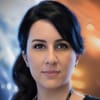Read the Sydney Morning Herald article here.
“I want to cut open ISIS’ stomach and pull out their intestines … and fry them. I get a passport soon then I fly over and do things to ISIS people that your mind will not believe,” the post read.
The grisly commentary purporting to be from a Queensland man popped up on a Facebook page called The Lions of Rojava two days after the death of Reece Harding, an Australian who was fighting with the People’s Protection Unit (YPG).
The slick, pro-Kurdish fighters’ page has been one of the most accessible sources of news about Harding’s death.
Such posts reveal a new online indoctrination threat that is rivalling the internet recruitment drive by the Islamic State (IS).
Organisations such as the Kurdish YPG now appear to be battling IS in cyberspace for the minds of potential recruits, using similar campaigns.
“It’s a huge concern,” says Raphael Aron, an expert in recruitment techniques. “There’s a process of recruitment going on that is putting people in harm’s way. You need to understand, social media recruitment is extremely powerful.”
While Harding was the second Australian to join the Kurdish forces and die in the fight against IS, the Australian government is aware of others on the front lines.
When news broke of Harding’s death in a landmine explosion, his father, Keith, said he thought the news of all the “beheadings and rapes” had motivated his surf-loving son to travel halfway around the world to join the fight.
The Herald has found numerous social media accounts associated with the Kurdish forces that appear to be encouraging young men to join the fight.
One of these is listed as belonging to a Mitchell Scott, who is shown in photos with closely cropped black hair, wearing dark sunglasses and carrying a Kalashnikov rifle.
Scott, however, is thought to be Queenslander Ashley Dyball.
Dyball’s transition from a Brisbane gym junkie to a tough-looking fighter with the Kurds and a booster for the YPG cause is chronicled on the page.
On May 4, he posted a picture of himself in Paris with the caption: “Heading inland now for some hiking!”
The next image is on May 24, where he appeared in an army uniform holding an assault rifle.
“No news is good news. Miss everyone from home hope you are all well,” he wrote in the caption to the image, along with comments attacking Islamic State.
The posts prompted an outpouring of alarm from his friends but also a comment from the operator of a Kurdish Facebook page who advised his friends not to talk to journalists.
On June 10, Dyball posted an explanation for his actions: “I can sit at home doing nothing with myself or I can stay here and help liberate innocent children and women to give them a better chance at life. If this means I can’t come home f— it, I don’t care, one life to save many,” it read.
More images were then posted to Dyball’s page, including some showing atrocities including a grisly photo of dead children, which led to promises of support from readers.
The post inspired a female supporter to ask: “What essentials, and what do they need to get their lives back to some form of normality?” to which he replied: “Best advice I can give is to contact the official @lions of rojava page which you can find on my profile as there are many scams out there and follow their advice.”
The Lions of Rojava page features tributes to fallen foreign fighters, including the two dead Australians – Harding, and Ashley Johnston, who was killed in February. It has also been a key source of information about their deaths.
The page includes a call to arms for foreign fighters, saying: “We have fighters from China, Canada, America, Brazil, Portugal, Spain, Germany, France, Greece, Romania, Russia, United Kingdom, Ireland, Finland, Denmark, Iran, New Zealand, Australia, South Korea, Syria, Italy you are all our friends. We are a family.”
Such social media offerings are powerful propaganda that is presented in a similar way as that served up by Islamic State, according to Nicole Matejic, who has advised the North Atlantic Treaty Organisation on information warfare and social media.
She says the groups fighting in the Middle East had mastered social media recruitment tactics.
Ms Matejic said Islamic State would send out content using the hashtag #Worldcup and “kids are seeing it”.
She believes the page’s featuring of Australians on the Lions of Rojava Facebook page has a huge impact.
“It influences their [potential recruits’] perception of what it’s like over there. We know it’s not as peaceful as they make out and it influences their decision,” she said.
Raphael Aron, who has been involved in counselling cult victims, said: “Regardless of the worthiness or ideological nature of a particular cause, anybody being drawn into this organisation is being drawn into an absolute danger zone.
“”There is process of recruitment going on and it’s putting people in harm’s way.”
The Australian government believes fewer than a dozen Australians have joined the Kurdish forces to fight IS.
Foreign Affairs Minister Julie Bishop said: “Under Australia’s autonomous sanctions against Syria, it is illegal to fight for any side in Syria.”
Earlier this year, Matthew Gardiner, then a Northern Territory Labor Party official, reportedly travelled overseas to help Kurdish forces but returned in April.
Contacted for comment last week, the Lions of Rojava page administrator said they were too busy: “Sorry Sir but not possible. We are getting dozens of requests like these every day. Thank you for your understanding.”
Efforts to contact Dyball have been unsuccessful.

